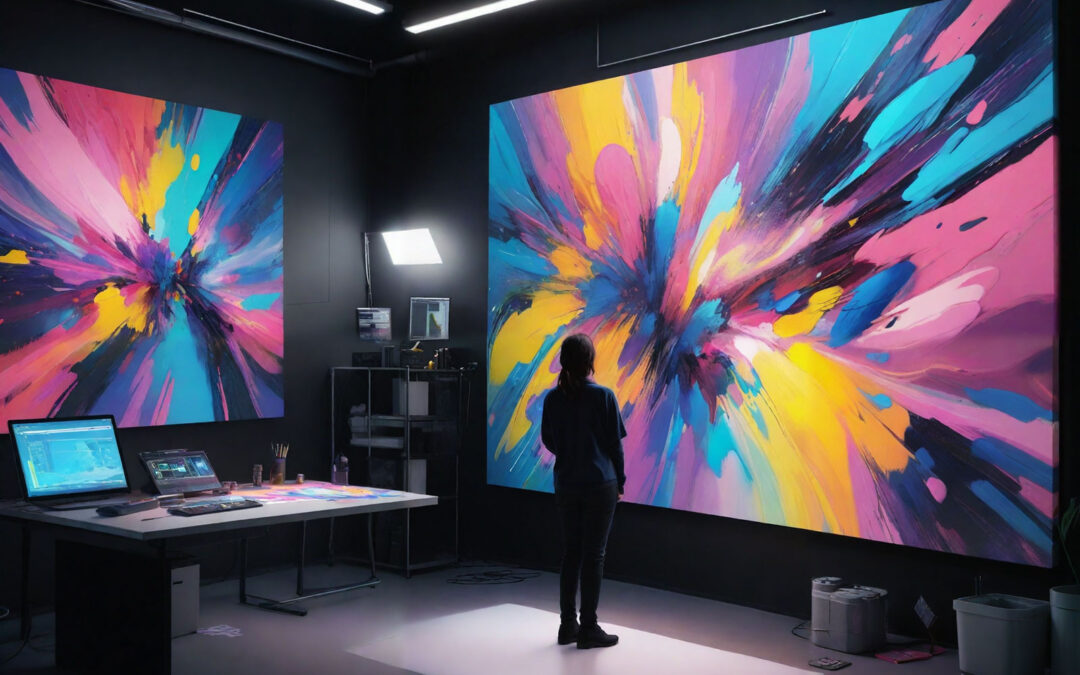Introduction
The year 2023 has ushered in an era where artificial intelligence, particularly generative AI, is not just a buzzword but a pivotal force reshaping industries. This blog delves into how this transformative technology is being integrated across various sectors, heralding a new age of innovation and efficiency.
The Landscape of Generative AI in 2023
Generative AI has marked its territory as a key player in the technological revolution. The McKinsey Global Survey highlights its rapid growth, emphasizing its wide-ranging applications from content generation to predictive analysis.
Generative AI: A Versatile Tool
- Text Generation: Tools like OpenAI’s GPT-3 are not just automating content creation but are also assisting in software development, making them indispensable in the tech industry.
- Visual Creativity: AI is now capable of producing intricate designs and artwork, pushing the boundaries of digital media and graphic design.
- Advanced Predictive Models: In finance, logistics, and beyond, generative AI is being leveraged for its unparalleled ability to analyze patterns and predict market trends.
Impact on Various Industries
The reach of generative AI extends far beyond the tech sector, influencing fields from healthcare to entertainment, and retail.
Transforming Healthcare

- Medical Report Generation: AI algorithms are now adept at interpreting medical data and generating accurate patient reports.
- Research and Development: AI is playing a crucial role in pharmaceutical research, accelerating drug discovery and development.
Revolutionizing Entertainment
- Creative Writing and Production: AI tools are assisting in scriptwriting and content creation, offering new perspectives in storytelling.
- Game Development: AI is being used to design complex game environments and AI-driven characters, enhancing the gaming experience.
Innovating in Retail
- Consumer Behavior Analysis: Retailers are using AI to predict consumer trends and optimize inventory management.
- Automated Customer Support: AI-driven chatbots and support tools are transforming customer service, offering personalized and efficient interactions.
Organizational Adoption and Integration
The integration of generative AI into existing business structures is a journey that involves overcoming challenges and embracing new strategies.
Navigating Integration Challenges
- Skill Development: Upskilling employees to work alongside AI tools is crucial for seamless integration.
- Data Ethics and Security: Ensuring ethical use of data and maintaining robust security protocols are paramount in AI adoption.
- Infrastructure Adaptation: Modifying existing infrastructures to support AI technologies is a key step for many organizations.
Leaders’ Perspectives on AI Adoption
Industry leaders highlight the importance of a balanced approach in AI integration, focusing on both innovation and ethical considerations.
Future Projections and Ethical Considerations
The trajectory of generative AI is filled with potential but also laden with ethical complexities.
The Road Ahead for Generative AI
- Enhanced Customization: The future will see AI further personalizing user experiences in various domains.
- Artistic Evolution: The role of AI in arts and media is expected to grow, offering new forms of creative expression.
- Solving Complex Challenges: AI’s application in complex problem-solving in areas like climate change and urban planning is anticipated.
Navigating Ethical Terrain

- Bias and Fairness: Addressing inherent biases in AI algorithms is critical to ensure fair and responsible use.
- Intellectual Property and Creativity Rights: Balancing AI’s role in creativity with respect for intellectual property rights remains a challenge.
- Workforce Transformation: The impact of AI on job roles and employment patterns necessitates thoughtful consideration and planning.
Conclusion
As we witness 2023 becoming the defining year for generative AI, it’s imperative to approach this technological marvel with a blend of enthusiasm and caution. Its integration into business and society promises a future where AI acts not as a replacement but as a complement to human ingenuity and creativity.
